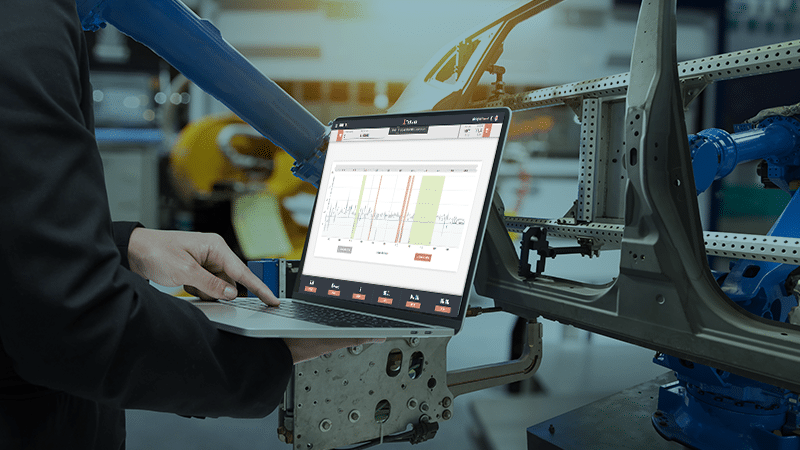
Machine downtime in production: how to prevent and manage them?
18 May 2023Smart Manufacturing: how to lead the change towards the smart factory
From buzzword to reality: more and more companies are facing the change towards Smart Manufacturing. But what exactly is it? What are the benefits and challenges? How to successfully deal with this change? We tell you about it in our latest TechStory
Smart Manufacturing or Intelligent Factory means the ability of a manufacturing company to have integrated and automated production thanks to the implementation of technologies such as the IoT, artificial intelligence and tools for real-time data analysis. The goal is to have a production process that is proactive to the needs of the market and to the problems of the entire production process, which is also able to reduce costs and production times.
The benefits of Smart Manufacturing
The benefits are different:
– increase in production efficiency, thanks to data analysis that allows you to intervene on waste and on the elimination of losses;
– cost reduction, deriving primarily from an optimization of the entire process;
– greater resilience in complex contexts and in the face of critical changes, essential in a constantly changing context;
– possibility of taking proactive actions, for example through predictive maintenance interventions;
– connection of all systems for 360° monitoring of the plant, in the case of multi-plant companies, comparison of KPIs in the various production sites;
– remote monitoring and control of production.
The challenges to face
In addition to the advantages just seen, there are still challenges that companies face when it comes to smart manufacturing:
– a cultural transformation so that all people in the company can be involved in this change that focuses on data as a source of value for making decisions;
– a transformation of skills by accompanying one’s own internal resources towards the knowledge of these new tools, explaining their potential and benefits for everyone;
– cost management: it is not always easy for companies to understand when is the right time to undertake this process and there may be the risk of facing change too quickly, investing in resources that are still premature for the current business context;
– security of the data that is collected and analyzed and which entails for the company the choice of whether to keep it locally or to reduce the risk by relying on Cloud services;
– integration between the various systems and with older machinery, a particularly critical point especially for solutions that are not Plug&Play.
How to tackle a Smart Manufacturing project
Once the benefits and challenges to be faced have been analyzed, a company wishing to undertake a Smart Manufacturing project should face the process step by step:
- Analyze your own needs: why do you want to go digital? What do you expect to get? What resources does it have to invest? What are the main problems you want to start addressing? These and other questions are essential in order not to lose focus in the subsequent phases, risking embarking on a project that is too large and complex to manage or overestimated for one’s needs.
- Identify with which solution and partner to undertake this project. Very often, in addition to the purely software and hardware part, it is also advisable to identify a partner who can accompany an improvement in production processes, for example by introducing the concept of lean manufacturing in the company if it is not yet present and thus reviewing the processes so as not to digitize any waste and inefficiencies.
- Implement the solution gradually especially if the company has never faced a digitization process before. This point is usually one of the most critical and if addressed too quickly there may be a risk of not being able to maximize the ROI of the investment made.
- Take any steps towards greater digitization once the resources in the company are ready.
- Analyze and monitor the results obtained especially in terms of improvement of KPIs and consequently reduction of costs that were previously present.
- Continue digitizing. Companies should see the smart manufacturing project as the beginning of a continuous improvement process and not an arrival point. A possible passage if first there was also the cultural transformation of the people.
Finally, a point in its own right that must be transversal to the whole process is certainly the involvement of all people: both those who have to decide the design part and those who, even minimally, will be impacted by this change. Listening, collaborating and creating a dialogue between departments is essential to ensure that new tools and processes are accepted and there is not a level of resistance to change, often caused by fear and misunderstanding.
Do you want to know how to successfully face this journey towards the smart factory and digitization? Contact us!
TechMass diventa TeamSystem!
Abbiamo percorso tanta strada insieme, e per migliorare ogni giorno i nostri servizi abbiamo deciso di continuare a crescere insieme a TeamSystem! Non cambierà nulla per te e i nostri servizi andranno in continuità. Il nostro sito nelle settimane successive sarà spento, ma potrai trovarci nel sito di TeamSystem!




